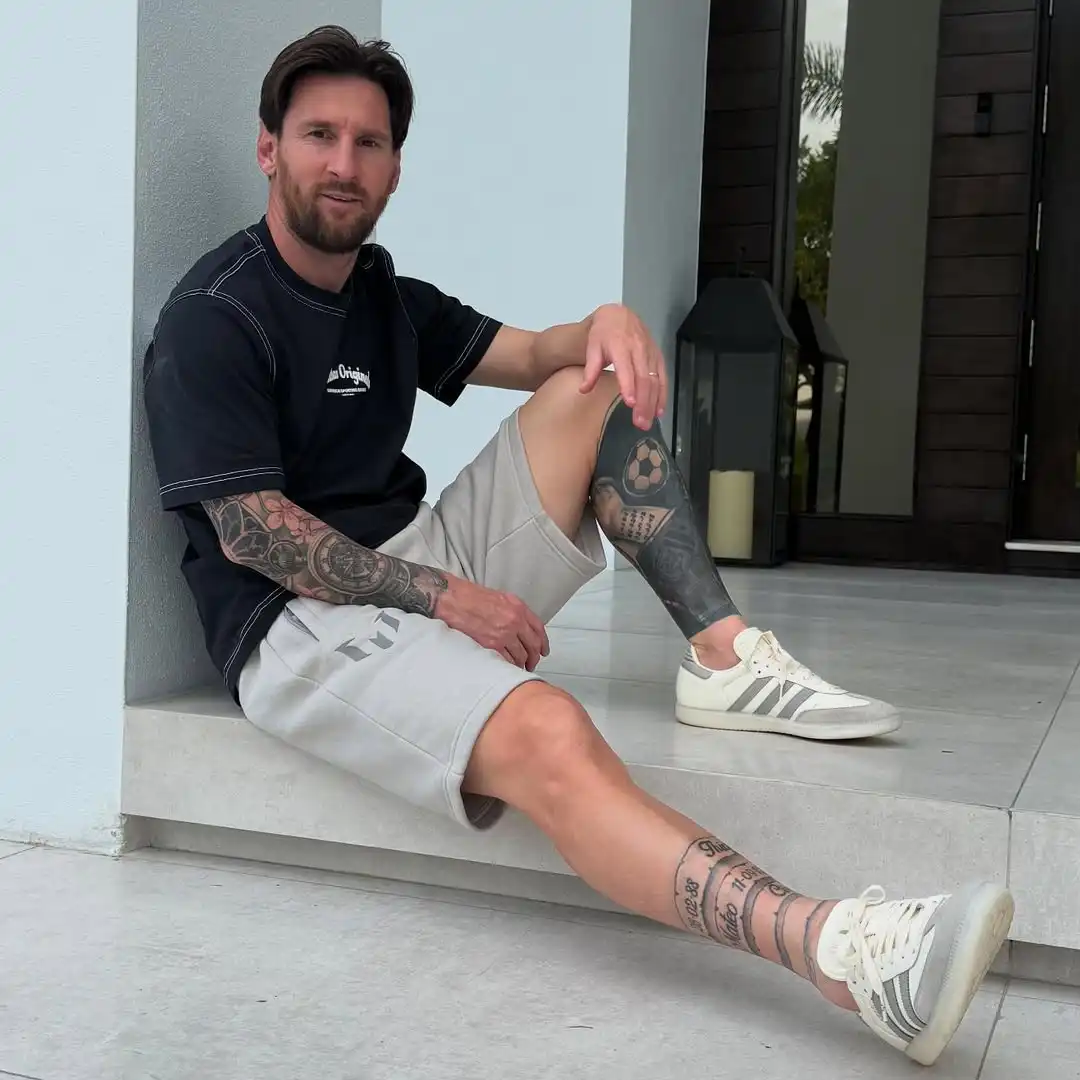Picture this: a dusty, bustling street in Rosario, Argentina. A small kid, barely tall enough to see over a kitchen counter, is dribbling a worn-out football, seemingly glued to his tiny feet. It's a scene played out in countless cities around the globe, but this particular kid, Lionel Andrés Messi, was destined for a journey unlike any other. His story isn't just about scoring goals or winning trophies; it's a saga of raw talent meeting unwavering determination, of overcoming odds, and ultimately, of rewriting the very definition of footballing greatness. From those humble beginnings, Messi's path to becoming the consensus GOAT (Greatest Of All Time) is nothing short of legendary. Born in 1987, Leo's childhood was pretty typical for a working-class family in Argentina, save for one crucial detail: his undeniable, almost preternatural, connection with the ball. His grandmother, Celia, was his biggest cheerleader, the one who first pushed him to play, even when others doubted his small stature. It’s a beautiful thought, isn’t it? That the spark for football's greatest flame was lit by a loving grandma. But even as his talent bloomed, a significant hurdle emerged: a growth hormone deficiency. This was a massive curveball, threatening to derail his dreams before they even truly began. Local clubs couldn't afford his treatment, and it looked like his incredible gift might be confined to the local pitches of Rosario. Enter FC Barcelona. It’s almost like a fairy tale, right? A scout hears whispers of this incredible kid, watches a tape, and the rest, as they say, is history. At just 13 years old, Messi packed his bags, leaving behind everything familiar for a foreign land. It was a massive gamble for both club and kid. Barcelona famously signed him on a napkin – literally – pledging to pay for his medical treatment and give him a shot at their famed La Masia academy. Imagine the courage of that young boy, stepping onto a plane, speaking little Spanish beyond what he knew from home, all for the love of the game. La Masia, Barcelona's renowned youth system, wasn't just a training ground; it was a crucible that forged his unique style, marrying his natural flair with the club's intricate, possession-based philosophy. He rose through the ranks with breathtaking speed, a human highlight reel even as a teenager, hinting at the unparalleled dominance to come. His senior debut for Barcelona came in 2004, and from that point, the world watched in awe as a phenomenon unfolded. With Pep Guardiola at the helm, Messi was unleashed as a 'false nine,' a tactical masterstroke that broke football wide open. He wasn't just scoring; he was orchestrating, dribbling past entire defenses as if they were training cones, and assisting with laser precision. The trophies piled up: multiple Champions League titles, countless La Liga crowns, and a ridiculous number of individual accolades, including a record-breaking seven Ballon d'Or awards. It became clear he wasn't just a great player; he was a game-changer, redefining what was possible on a football pitch. For nearly two decades, he was the heartbeat of arguably the greatest club team ever assembled, painting masterpieces on the canvas of the Nou Camp. Yet, for all his club glory, there was an elephant in the room: his national team. The weight of a football-mad nation rested heavily on his shoulders. For years, the narrative persisted: "He's amazing, but can he do it for Argentina?" Heartbreaking losses in major finals – multiple Copa Américas, and that agonizing 2014 World Cup final in Brazil – fueled the critics. You could feel the collective sigh of a nation with every near miss. He even briefly retired from international football, so immense was the pressure and disappointment. But Messi, ever the quiet warrior, returned, driven by an unyielding desire to deliver for his country. The Copa América triumph in 2021 was a turning point, a catharsis, finally breaking a long trophy drought for Argentina and lifting a huge burden from his shoulders. It was a proper "finally!" moment for fans around the globe. Then came the crescendo: the 2022 World Cup in Qatar. This was it – the last dance, the final shot at the trophy that had eluded him and haunted a nation. The entire tournament felt like a pre-written movie script, with Messi as the undisputed protagonist. He was majestic, scoring crucial goals, delivering sublime assists, and leading his team with an intensity that was palpable. Every step felt like destiny unfolding. The final against France was an absolute epic, a rollercoaster of emotions that truly tested the heart. From being seemingly in control to a Kylian Mbappé-inspired comeback, it had everything. But when the dust settled, and Gonzalo Montiel converted that final penalty, the roar of joy from Buenos Aires to Barcelona echoed across the planet. Messi, at 35, had finally, definitively, completed football. He held the golden trophy aloft, a moment that felt like the universe itself was aligning. Lionel Messi's journey from Rosario to the top of the world is more than just a football story; it's a testament to the power of belief, resilience, and unparalleled talent. He showed us that even the greatest among us face struggles and setbacks, but it's how you respond to them that truly defines you. His humility, his quiet leadership, and his sheer brilliance have not only inspired millions but have also set a new benchmark for excellence in sports. He’s not just a statistical marvel; he’s a living legend, a global icon who, with a ball at his feet, could always make you believe in magic. The kid from Rosario didn't just reach the top; he became the very pinnacle, leaving an indelible mark on the beautiful game for generations to come. And that, my friends, is why he’s the GOAT, no arguments necessary.












